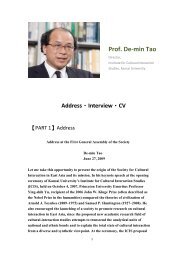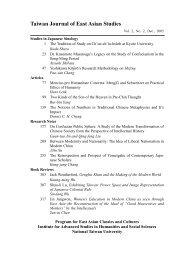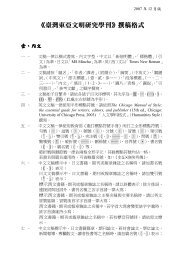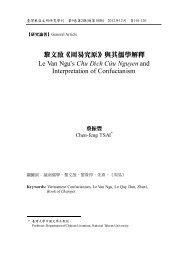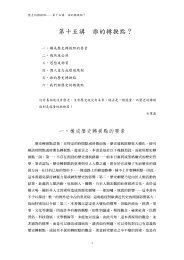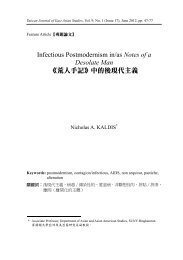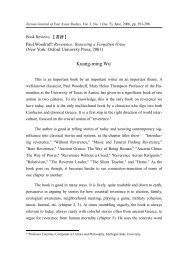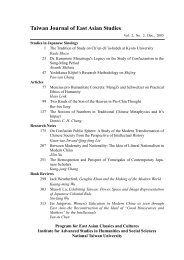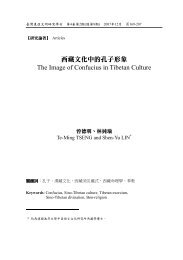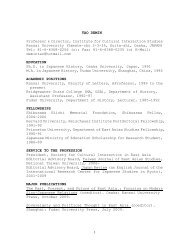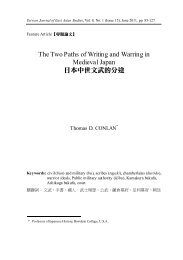臺灣東亞文明研究學刊 - 東亞經典與文化研究計畫 - 國立臺灣大學
臺灣東亞文明研究學刊 - 東亞經典與文化研究計畫 - 國立臺灣大學
臺灣東亞文明研究學刊 - 東亞經典與文化研究計畫 - 國立臺灣大學
Create successful ePaper yourself
Turn your PDF publications into a flip-book with our unique Google optimized e-Paper software.
218 Taiwan Journal of East Asian Studies, Vol. 4, No. 2 (Iss. 8), Dec., 2007<br />
It is an open question how far this integration of negative experiences into the<br />
historical self-awareness of the Germans will go and whether it will ever reach the<br />
level of everyday life communication. But one cannot deny that on the level of<br />
official historical culture, — in textbooks, events, monuments, memorials,<br />
exhibitions, in historical museums etc. this growing awareness of ambivalence has<br />
become a characteristic feature.<br />
Such ambivalence runs against the logic of ethnocentrism. The others are no<br />
longer the only place where one can put all those elements of historical experience,<br />
which contradict one's own morality and high self-esteem. So with a growing<br />
ambivalence within the realm of one's own identity the chances for recognizing the<br />
others grow. The concession of negativity in oneself is a concession of positivity for<br />
the others at the same time. This rearranges the mental strategy of identity<br />
formation towards a new potential of recognition and acknowledgement.<br />
The German case is only an example. There are similar trends in other<br />
European countries as well. The French have worked through the burdening<br />
negative experience of their crimes in the Algerian Liberation War. Imperialism as a<br />
European affair is another example. Its dark sides have been realized and led to a<br />
high degree of European self-criticism. This self-criticism has become a powerful<br />
factor in European identity across the differences of European countries and<br />
nations. It is remarkable that the Swedish Government started its project "Living<br />
history" in 1997 on the Holocaust in a European perspective. This project tackles<br />
dimensions, contexts and conditions for the Holocaust, which go beyond the limits<br />
of German history. Our neighbours have become aware of their involvement in the<br />
crimes, of their cooperation. General European features of the Holocaust have<br />
become visible: anti-Semitism, racism and similar factors, without which the<br />
Holocaust would not have taken place.<br />
x



